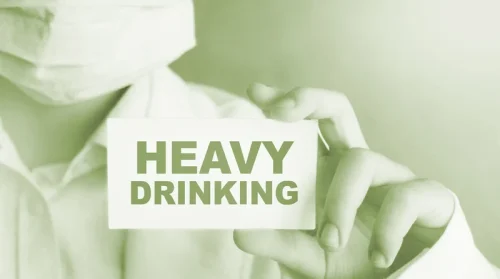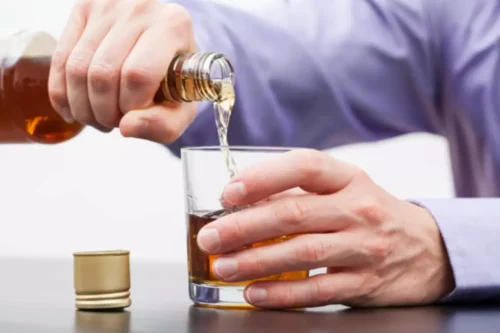
The key is to take your recovery one day at a time. Focus on making it through today without substances, and let tomorrow handle itself. One of the most effective ways to overcome the fear of being sober is to surround yourself with a strong support system.

Fear of Being Judged for Addiction
- Understanding the root of your fear is crucial.
- That’s why you started using in the first place.
- She said anyone can have the same experience being sober.
- In fact, here’s a little secret – anyone who is charming drunk can be charming sober.
Everything I knew revolved around getting high and I had the maturity of a 13-year-old. I had to face the cost of rehab and its treatment requirements. I had to learn how to grow up and become a productive member of society. I wondered how in the world was I ever going to attend a social event that served liquor.
Promises Behavioral Health Addiction Treatment Centers

Ask any sober person whether they want to go to a cocktail party or stay in with a pack of La Croix, The Crown, and a bathrobe. I’d bet nine out of 10 of us won’t even answer, and we’ll just laugh because it’s such a ridiculous question. Sobriety doesn’t necessarily turn you into Liz Lemon, but it can give you the clarity to understand that you’ve been Liz Lemon your whole life. When I was drinking, it never occurred to me that I was an introvert.
Gayle is an author, podcast host and sobriety coach
Suboxone (buprenorphine/naloxone) is indicated for the treatment of opioid dependence in adults. Suboxone should not be taken by individuals who have been shown to be hypersensitive to buprenorphine or naloxone as serious adverse reactions, including anaphylactic shock, have been reported. For more information about Suboxone (buprenorphine/naloxone) see Suboxone.com, the full Prescribing Information, and Medication Guide, or talk to your healthcare provider. You are encouraged to report negative side effects of drugs to the FDA.

Feel What Sobriety Feels Like for Yourself
Addicts will have to face their relationships with people again, with their families, friends, and co-workers. They may have wronged some of these people, or they might be embarrassed about how they once acted. They’ll have to feel emotions again without numbing them with drink or drug and maneuver their way through tricky family and relationship dynamics. Addiction can be a way to avoid the things we don’t want to deal with. Sobriety means having to face uncomfortable truths about ourselves and others and having to stand up and be who we are. We may have to face all kinds of adversities and personal challenges while we come clean.
How to Cope with a Fear of Sobriety
- This prevented me from being able to see that I had a dangerous relationship with booze.
- You will have to learn how to pay bills on time and how to work towards your long-term goals.
- Sobriety is often tied to the extreme stereotype of addiction, the old homeless man that lives under the bridge, the heroin addict who shoots up in the bathroom.
- Many individuals on the road to recovery experience this fear.
- In some cases, it’s more complicated than that.
- I thought these needs were simple, since the only thing I needed was any substance to make me escape from my own mind.
The hitch is you have to do it—as in get sober. Dealing with setbacks or relapses is a common part of the recovery process. It’s important to view these events not as failures but as opportunities for learning and growth. If you experience a setback, take fear of being sober the time to analyze what led to the relapse and discuss it with your support network or therapist to understand the triggers involved. Strengthening your coping strategies and possibly adjusting your recovery plan can help prevent future setbacks.
They Don’t Want to be Different
I don’t think it’s change that you’re so afraid of. If you didn’t want to change, you wouldn’t bother to get sober. Here are some common fears in sobriety and what you can do to manage them. https://ecosoberhouse.com/ First, it is normal to be afraid when you first get sober. However, if you don’t learn to manage those fears and put them into perspective, they will drive you right back to the bottle.
- If you go for a few days, weeks or months without drinking and then have one (or many) you haven’t failed.
- Alternatively, you may think following a healthy lifestyle will be too challenging.
- In these programs, individuals can develop positive coping skills with the tools necessary to maintain sobriety.
- Eudaimonia Recovery Homes offers a structured sober living environment that helps you manage your recovery step by step.
- This can include moving in a new social circle, taking up new activities and leading a healthier lifestyle.
- Many addicts worry that withdrawals will be too painful to cope with.
You’re Afraid of Withdrawal Symptoms.
It’s seen as normal to drink, and quitting that drug can feel like breaking a social pact. So your bold, life-improving decision to not drink will mean changes almost everywhere you look. Here are some surprising (and not-so-surprising) occurrences that will inevitably happen to your relationships, your identity, even your free time, and how I’ve learned to deal with each one. As soon as I got some sobriety time under my belt and actively worked a 12-step program, I’ve found that I have freedom.
Learning Center

Fear is the motivator of most actions taken by anyone in active addiction. But sometimes the juggling act gets old, the attempt at moderation becomes exhausting, and we just can’t keep all the lies straight. You might have these common fears about getting sober, but the benefits greatly outweigh the risks.